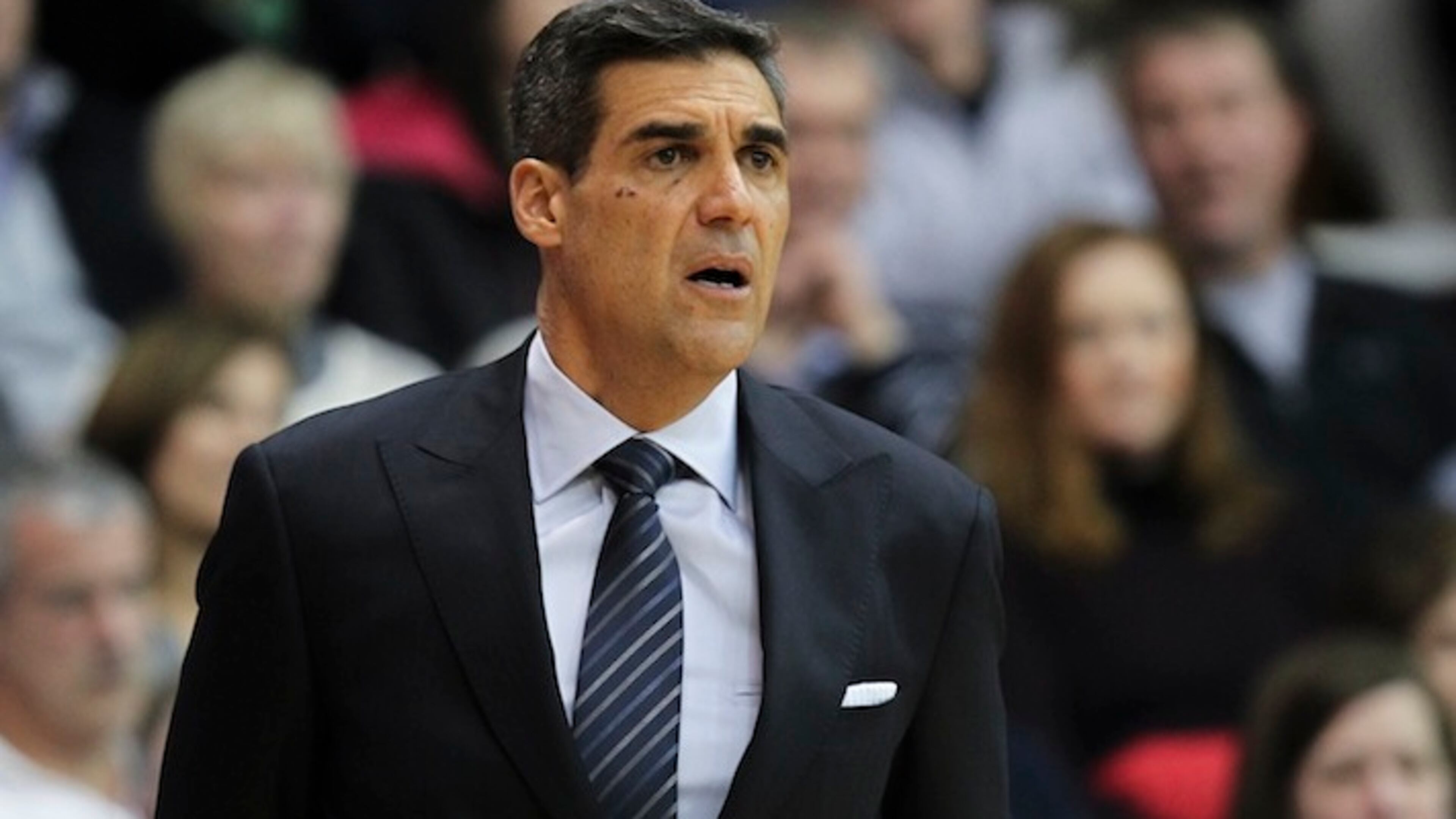Baker Dunleavy: Villanova basketball's chief of staff

The texts come in. Villanova assistant coach Baker Dunleavy usually notices them right after a game, after he grabs his phone in the locker room.
"He just can't help himself during a game," Dunleavy said of the texter. "He's a junkie, a basketball addict."
The texter used to coach the Lakers and then the Trail Blazers and then the Clippers, but now Mike Dunleavy has time to watch one of his sons, Mike, play in the NBA and another one, Baker, work as Jay Wright's top Villanova assistant.
Dad can't text Mike on the court, but he watches a lot of Villanova games. Maybe he'll suggest how to defend a certain ball screen, or not guarding the in-bounder when full-court-pressing.
"As if I'm going to read it during the game in my pocket and get in the huddle and make the adjustment," Dunleavy said.
The son gets a kick out of it: "I think it's therapeutic for him."
It speaks to Baker Dunleavy's lineage, but also his ease with that lineage, that Baker brings up the texts, both getting a kick out of them and respecting their content.
Given his lineage, Dunleavy's path to this job might seem obvious. It really wasn't. He did not show up as a Villanova recruit with any thought of coaching. He also didn't play much.
"Coach Wright was always honest -- I wasn't a Big East player," Dunleavy said. "I was recruited to be a scholarship player who could help give depth, and that was a big-time class -- if guys were to leave early, you have an experienced guy ready to play."
Dunleavy was the extra guy in the class that showed up at Villanova in 2002 and really got things going under Wright. There were center Jason Fraser, forward Curtis Sumpter and guards Allen Ray and Randy Foye.
After graduation, Dunleavy went to Wall Street, a stockbroker, working at Merrill Lynch and Bank of America.
Was he pretty good at it?
"You know what, there were a lot of athletes who worked in my area," Dunleavy said. "It's a competitive business. I really enjoyed it. At the end of every day, there's a score sheet. You either lost money or made money. That part of it was really cool. I really believed if I didn't have this draw back to basketball, I'd still be doing it."
But he couldn't shake that pull.
"Every once in awhile I would bring it up to him," Dunleavy said of conversations he'd have with his old coach. "He would try to convince me to stay ... I kind of begged my way back in."
"We have a great network on Wall Street, it's called the Villanova Financial Club," Wright said, mentioning that some former Villanova stars were involved. "I was really proud he was in it, and doing well. All those guys were telling me this kid's a superstar, he's going to be great. I knew he was making good money."
When Dunleavy kept talking up basketball, Wright helped him get work as an analyst for SNY in New York, figuring that would fill the hole.
"It might have been two straight years," Wright said of their conversations about Dunleavy's getting into coaching. "Then I was like, I'd love to have him here obviously."
So Dunleavy worked his way up the staff from an operations job. His current role, incorporating assistant duties of scouting and running the offense in practice, is equivalent to chief of staff.
"He oversees complete day-to-day operations," Wright said. "Our whole basketball operation. Everything we're doing recruiting, with the players off the court -- everything I need to know about, he's on top of it."
Wright makes it clear he can't have a yes man in the job.
"I think he learned that your responsibility is to tell what I "don't want to hear, tell me when it's not going to be comfortable," Wright said. "He'll always tell me the truth, which is the most valuable thing, and usually the hardest thing for a former player to do, but that's why I respect him."
Not being a star player, Dunleavy said, "It also makes you hungry. A lot of players who didn't accomplish everything they wanted as a player still have that hunger to compete. ... I had great aspirations as a player -- it wasn't meant to be. I have those same aspirations as a coach."
"If there's a value I provide during a game, it's been being around him a long time," Dunleavy said. "I know how he thinks."
He's learned when to bring something up they've talked about, Dunleavy said, and when to back off.
As for those texts from dad, Wright doesn't hear about them.
"I don't know when he's doing it," Wright said. "His dad is one of the smartest basketball people I know, and he comes from that, so even though Baker looks at the game differently than I do, he's been in the program and had success, and knows what I want."
"Everything he says makes sense," Dunleavy said of his father. "It's always very smart. And it's NBA execution. We have a different way. Sometimes those things merge and I think, 'I should bring that up.' But other times, 'OK, that would work for teams that practiced that and did that the whole season.' You can't just say it and do it. ... He's not trying to convince us to change things. He just enjoys the discussion."


